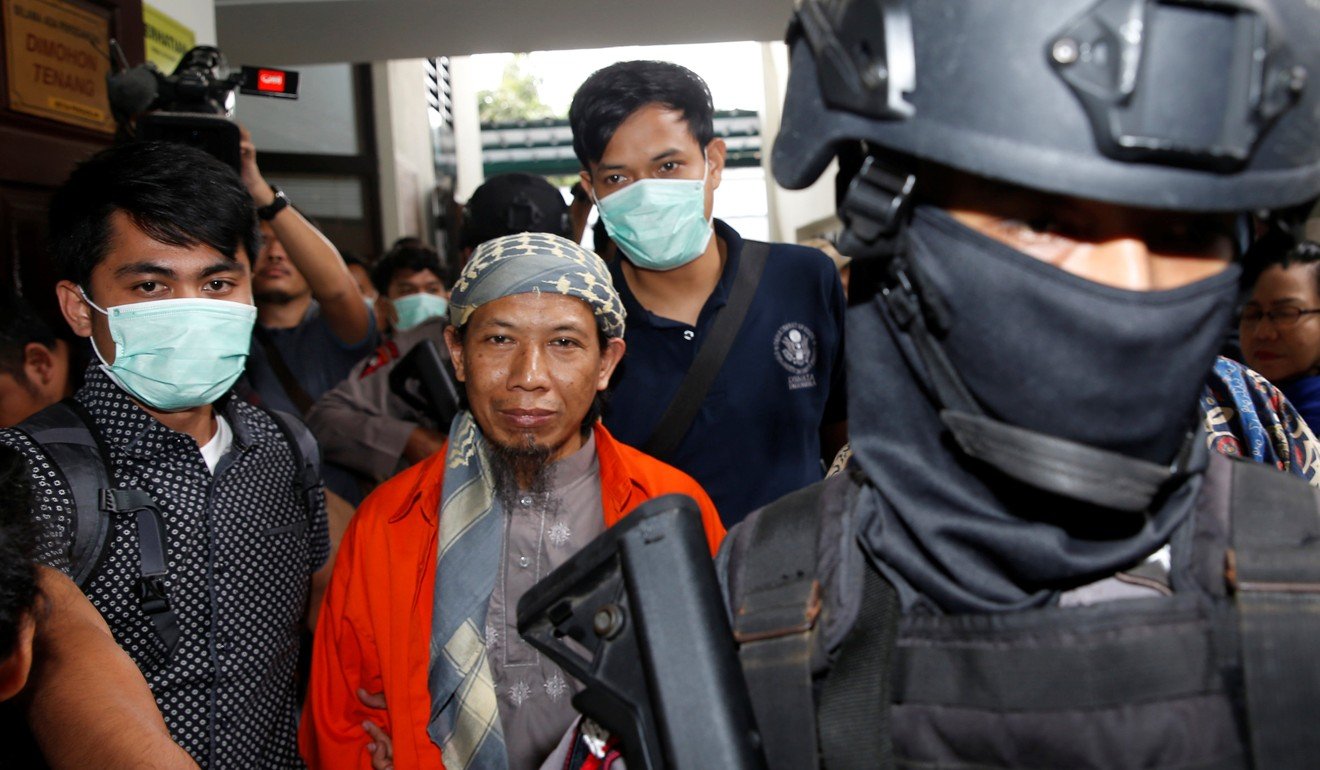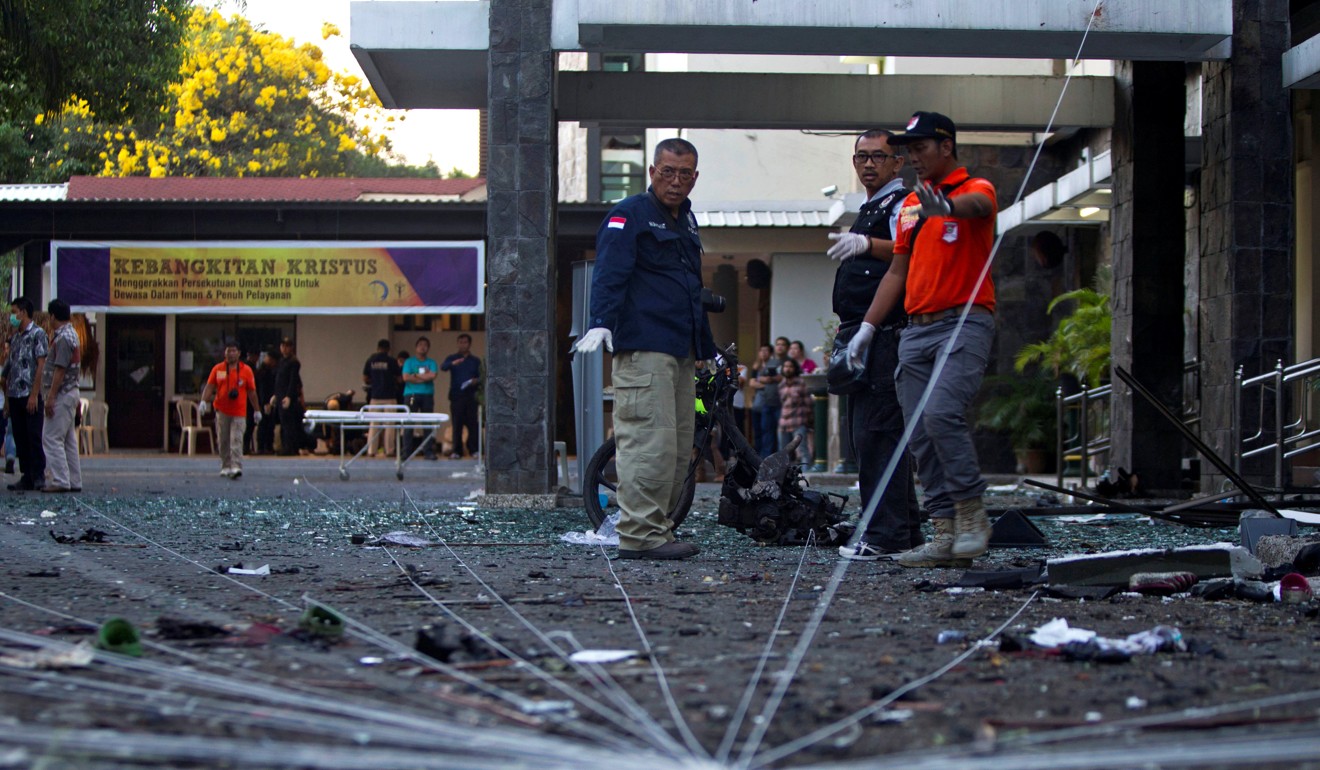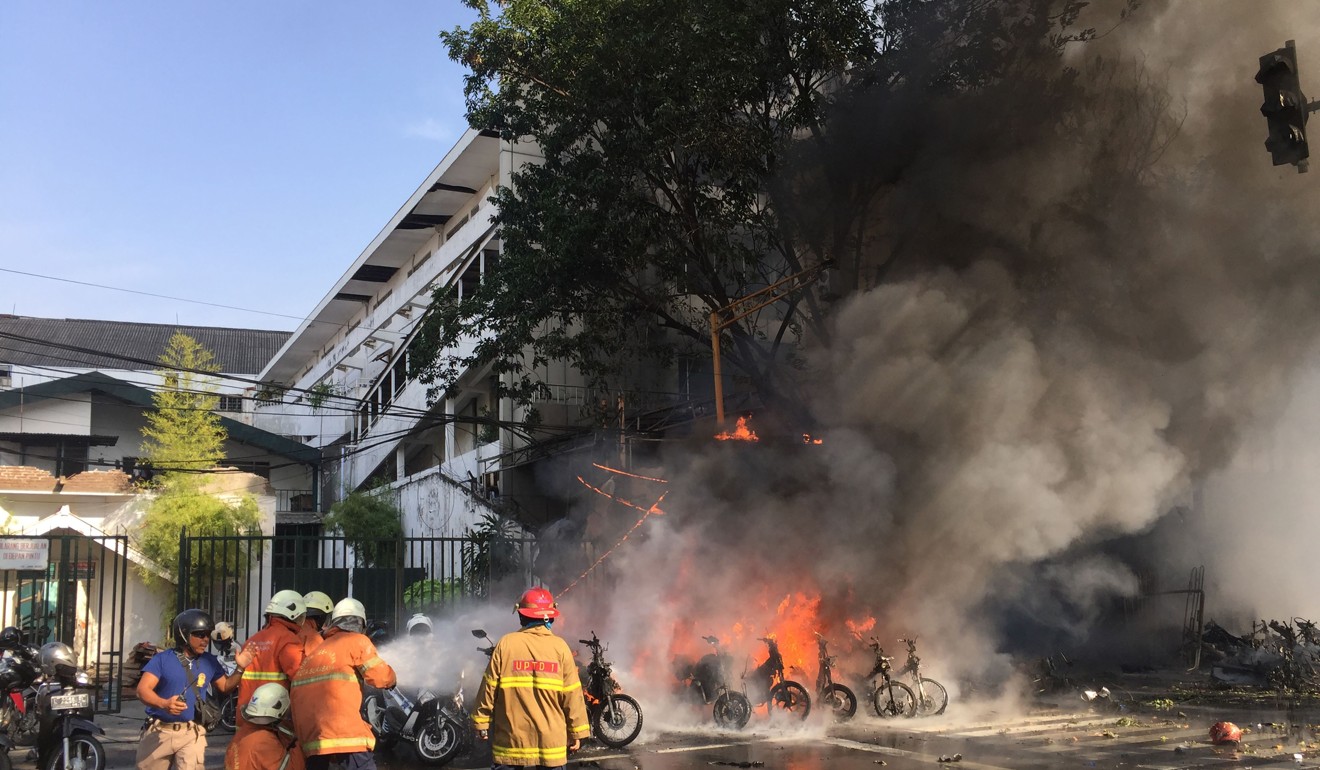
JAD: the extremist group that recruits families to spread terror in Indonesia
Islamic State has claimed responsibility for several recent attacks in Indonesia, most of which have been carried out by JAD
A wave of deadly suicide bombings that have rocked Indonesia’s second biggest city Surabaya are linked to local extremist network Jamaah Ansharut Daulah (JAD), which has pledged allegiance to Islamic State (IS). Here are some questions and answers about JAD.

What is JAD?
Formed in 2015, JAD gained notoriety in January 2016 for a gun and suicide attack in the capital Jakarta that left four attackers and four civilians dead.
It is made up of almost two dozen Indonesian extremist groups that have pledged allegiance to IS leader Abu Bakr al-Baghdadi, according to the US State Department, which last year designated it as an extremist network.

What attacks have they carried out?
Apart from the 2016 Jakarta attack – the first claimed by IS in Southeast Asia – JAD carried out suicide attacks the following year which killed three policemen and injured a dozen others at a busy bus station in Jakarta. IS said it was also responsible for ordering that attack.
JAD has been linked to a series of other plots in Indonesia, including a firebomb attack on a church that killed a toddler and a plan to launch a Christmas-time suicide bombing. This was foiled when the militants planning the attack were killed.
How was JAD involved in the Surabaya attacks?
Indonesia is reeling from a series of deadly blasts that have rocked the city of Surabaya and the surrounding region in the past two days, killing 25 people including bombers and injuring scores more.
The six church bombers – a mother and father, their two daughters, aged nine and 12, and two teenage sons – have been linked by police to JAD. In addition to themselves, 12 people died.
The father of the church suicide bombers was a local leader in the network, police have said.
Another family of five including a child, which carried out the suicide bombing of a police headquarters on Monday, were also part of the group. Four of the bombers died.
Police say a third family, three of whom were killed in the apartment explosion outside the city, were also JAD members. That explosion may have been a premature detonation of a bomb.
What is the connection to IS?
IS has claimed responsibility for several recent attacks in Indonesia, most of which have been carried out by JAD.
Although considered Indonesia’s largest pro-IS coalition, JAD’s structure and links to the international terror network are murky.
The Institute for Policy Analysis of Conflict has said JAD is “in fact a generic term used for any supporter of ISIS” and functions more as an umbrella organisation than a coherent group.
Abdurrahman, however, has recruited militants to join IS, is thought to have been in communication with leaders of the jihadist group, and is the main translator for IS propaganda in Indonesia, according to analysts and authorities.

What groups have been behind previous attacks?
For years, Jemaah Islamiah (JI) was synonymous with terrorism in Indonesia. The group was responsible for the country’s worst-ever attack, the 2002 Bali bombings that killed 202 people.
In subsequent years the group carried out a string of deadly attacks, including a 2003 car bombing at the JW Marriott hotel in Jakarta that killed a dozen and a suicide car bomb the following year outside the Australian embassy that killed 10. Attacks in 2005 at tourist spots in Bali killed 20.
A splinter group, led by Malaysian Noordin Top, was responsible for blasts in 2009 at the Ritz-Carlton and JW Marriott hotels in Jakarta, which killed nine and injured more than 40.
Another JI splinter group Jamaah Anshorut Tauhid – founded by elderly cleric Abu Bakar Bashir – was blamed for a 2011 suicide bombing of a Christian church in central Java, wounding dozens.

.png?itok=arIb17P0)